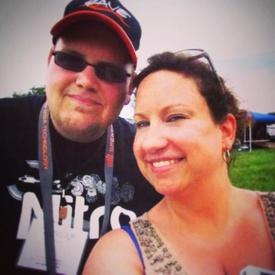DONT EAT AFTER 8PM!

skinnylove00
Posts: 662 Member
wow, i thought that it did not matter what time you ate, but this article proves otherwise
http://www.psychologytoday.com/collections/201109/fat-fighting-foods/does-late-night-snacking-make-you-fat
this new study shows that subjects who ate more calories after 8pm were significantly heavier, even when controlling for other possible influences on weight like sleep duration. And a number of studies have shown that obese people eat more meals in the evening or night than lean people do.
YOUR thoughts and ideas?
http://www.psychologytoday.com/collections/201109/fat-fighting-foods/does-late-night-snacking-make-you-fat
this new study shows that subjects who ate more calories after 8pm were significantly heavier, even when controlling for other possible influences on weight like sleep duration. And a number of studies have shown that obese people eat more meals in the evening or night than lean people do.
YOUR thoughts and ideas?
0
Replies
-
i'll have to read the study, but some arbitrary cutoff time where eating somehow becomes bad is ridiculous0
-
I have heard that. But I like to go with what my doctor told me. It does not matter what time the calories are consumed/burned, it is still going to be the same number of calories consumed/burned no matter what time it took place.0
-
I eat up until the last hour before bedtime, which is 4am for me..... and I'm losing weight. I guess these type of articles just don't really apply to everyone....?0
-
wow, i thought that it did not matter what time you ate, but this article proves otherwise
http://www.psychologytoday.com/collections/201109/fat-fighting-foods/does-late-night-snacking-make-you-fat
this new study shows that subjects who ate more calories after 8pm were significantly heavier, even when controlling for other possible influences on weight like sleep duration. And a number of studies have shown that obese people eat more meals in the evening or night than lean people do.
YOUR thoughts and ideas?
I think it's bogus. I always eat past 8 PM and fall asleep sometimes 30 mins later. I'm still lean.0 -
Am I going to turn into a gremlin?0
-
I don't agree, no matter what the article says. I eat right up until I go to bed. I think overall if you are eating at a deficit, you'll lose weight. Depending how you've set up your macros will determine your body composition. Just my opinion.0
-
Some people say not to eat after 4...others after 6.....others after 8....
I usually get up in the middle of the night and snack and have still lost 20 lbs....
it's whatever works for you...0 -
bump0
-
Am I going to turn into a gremlin?
The horror!!0 -
We eat dinner after my son goes to bed (8pm) and I am losing weight. And was never really heavy before, just trying to lose the baby weight. We also make sure not to eat any heavy carbs at night. So our evening meals usually consist of a meat and veggies.0
-
After just kinda skimming through it I saw that it mentioned that the reason they are heavier is because they still eat more caloires then they need. They eat big meals then a ton at night.
So it has nothing to do with the late night eating, its the energy balance.
So I have to agree. completely bogus haha I basically only eat at night0 -
Ok, "studies" are sometimes fun. Sometimes their conclusions attempt to draw causality out of what may correlation. As the two concepts aren't the same, they probably shouldn't be treated the same.
Not having read the study, though, I'm a little suspicious. If they can't point to an observable, bioochemical mechanism, they're really just grasping at straws. It's all well and good to notice patterns, but a single pattern does not a rule make.0 -
Correlation does not necessarily determine causation. You can eat anytime, it doesn't matter. All that matters is how many calories you're eating.0
-
I eat when I am truly hungry. If it is 10 pm (although it rarely is) I'll eat.0
-
Correlation does not necessarily determine causation. You can eat anytime, it doesn't matter. All that matters is how many calories you're eating.
Amen:drinker:0 -
Actually, I have had this topic addressed several times...here are the facts in layman's terms....During late night hours, we secrete hormones that increase our hunger and makes it more difficult to resist urges to eat. For this reason, people tend to snack more, make less healthy choices and because the most restorative natural sleep cycles occur between 9pm-3pm, it's harder to exercise, have energy and keep the weight off. It's more about hunger than anything else, tough.0
-
I wonder if they took into consideration the TYPE of food the night-eaters were eating...
Maybe people who choose to eat after 8pm are more likely to choose unhealthy foods, or calories that they don't need. If someone is eating a reasonable amount of "good" calories (as opposed to sugary garbage), it shouldn't matter what time they eat.0 -
I have lost 110 pounds on my own, with no fad diets, no pills, and by not following any "dieting rules". Who created the myth about 8 PM being the end all to eating for the day? What if you work until 9 or 10 PM but can't eat dinner at work? Are you supposed to not eat dinner? I eat and go to bed sometimes 15 minutes after, and like I said... I've lost 110 pounds! I run almost every morning at 5 AM and cannot eat beforehand, so it may be more beneficial that i eat late so i have some fuel for my runs. Weight loss =you must burn more cals than you take in! It's not good for anyone to eat all/most of their calories in one sitting whether it be breakfast lunch or dinner, but i eat my 400-500 calorie dinner anywhere between 830-10 and sometimes have a snack after. I am very active, but still keep my calories around 1600-2000 per day. People put too much emphasis on all these rules for weight loss when in reality, you just need to eat healthy, natural and as clean/whole as possible and BE ACTIVE!0
-
i can't find the study it references but from things the article linked to
"But even after adjusting for these and other variables, the scientists discovered that eating after 8 p.m. was associated with a higher body mass index, suggesting that late-evening calories are, for some reason, more hazardous to your weight. "
correlation =/= causation
"But recent animal research also suggests that some of the late-night eating effect may be independent of the type and amount of food consumed: Feeding mice on a high-fat diet at the <wrong> time of day (i.e. in the daytime, when they would normally be sleeping, adorably) made them gain 28% more body weight than fellow furries eating almost exactly the same amount of the same diet on their normal schedule."
they fail to mention that in rats and mice DNL occurs at about 10x greater weight then humans, so don't see the relevance there, but will tell my mice and rat friends not to eat late at night0 -
I don't agree with that. I think the idea is you shouldn't eat and then go to bed. Well, if you're like me and don't finish work until 3 or 4 in the morning (I'm a writer) and your day starts later than those of the average individual, if I'm eating at 11 at night, that is like my supper hour. It is still the same number of calories and I'm up another 4 or more hours after eating, so what's the harm? I think you have to take your individual time schedule into consideration.0
-
I wonder if they took into consideration the TYPE of food the night-eaters were eating...
Maybe people who choose to eat after 8pm are more likely to choose unhealthy foods, or calories that they don't need. If someone is eating a reasonable amount of "good" calories (as opposed to sugary garbage), it shouldn't matter what time they eat.
doesn't really matter i eat ice cream almost every night before i go to bed0 -
This probably applies to people who have a problem with night-time snacking. Not necessarily people that eat after 8 and it's part of their regular daily intake. I'm willing to guess that the people that are heavier that do eat after 8pm are eating that meal/snack after they've already had dinner and are already over in their daily allotment of calories.wow, i thought that it did not matter what time you ate, but this article proves otherwise
http://www.psychologytoday.com/collections/201109/fat-fighting-foods/does-late-night-snacking-make-you-fat
this new study shows that subjects who ate more calories after 8pm were significantly heavier, even when controlling for other possible influences on weight like sleep duration. And a number of studies have shown that obese people eat more meals in the evening or night than lean people do.
YOUR thoughts and ideas?
I think as long as we are at a deficit, we'll be alright. It leaves your body less time to use it before you are sedentary and you'll probably be holding in your stomach when you weigh the next morning but I'm guessing that overall, it would not make a difference as long as the food isn't "extra".0 -
correlation =/= causation
Bingo!! Very basic, but so often ignored...!!0 -
This is what i don't like... "But a recent study found that people who ate more calories after 8pm" more calories than what???? If you eat more calories of course you'd gain weight.
Also on one of the links, it says "this debate has been going on for years with mixed results." Depends what you feed the test subject. If you consume carbs before bed, it will lower growth hormone levels which are raised during sleep.0 -
I would say that every body is a little different. I noticed that I had a plateau with my weight loss for many weeks. I realized that I was eating dinner late in the evening. I have since quit eating after 6pm and for some reason that seems to have made a difference for me. Not everyone is going to see the same results I would imagine.0
-
This article actually doesn't "prove" anything. :flowerforyou:0
-
I don't know about others, but I always eat something like a bowl of cereal or some fruit within 30 minutes of going to bed. Otherwise, my stomach wakes me up at 2 or 3 AM, pimp slaps me, and drags me to the kitchen for something to eat. I'm losing fat, so it doesn't seem to be affecting my progress.0
-
I wonder if they took into consideration the TYPE of food the night-eaters were eating...
Maybe people who choose to eat after 8pm are more likely to choose unhealthy foods, or calories that they don't need. If someone is eating a reasonable amount of "good" calories (as opposed to sugary garbage), it shouldn't matter what time they eat.
doesn't really matter i eat ice cream almost every night before i go to bed
Well yeah, but if you're counting that in your totals and compensating for that with the rest of your lifestyle then obviously it shouldn't matter... hence my original statement regarding "eating a reasonable amount," rather than just eating whatever they feel like in whatever quantity they want.0 -
I'm guessing that heavier are more likely to eat ANYTIME. This sounds like a bogus study to me. I try not to eat after 8pm, so I won't go over my calories, but the time doesn't really matter. If I have 500 calories left at 8pm, you better believe I eat.0
-
"Part of the reason for these findings is probably that late-night snackers tend to pick high-calorie options, and people who eat a larger number of calories in the evening end up eating a larger number of calories over the whole day."
...That's taken directly from the article... which was actually my exact point. LOL. So this article doesn't "prove" anything. This article isn't even a scientific study... it's just some person talking about some other studies and what was found, and what may/may not have caused those findings.0
This discussion has been closed.
Categories
- All Categories
- 1.4M Health, Wellness and Goals
- 398.1K Introduce Yourself
- 44.7K Getting Started
- 261K Health and Weight Loss
- 176.4K Food and Nutrition
- 47.7K Recipes
- 233K Fitness and Exercise
- 462 Sleep, Mindfulness and Overall Wellness
- 6.5K Goal: Maintaining Weight
- 8.7K Goal: Gaining Weight and Body Building
- 153.5K Motivation and Support
- 8.4K Challenges
- 1.4K Debate Club
- 96.5K Chit-Chat
- 2.6K Fun and Games
- 4.8K MyFitnessPal Information
- 18 News and Announcements
- 21 MyFitnessPal Academy
- 1.5K Feature Suggestions and Ideas
- 3.2K MyFitnessPal Tech Support Questions
















